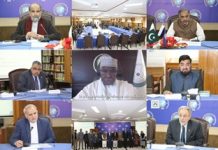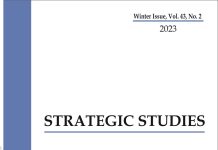Great Powers in the Changing International Order. Nick Bisley. New Delhi: Viva Books Pvt Ltd., 2016. Pp. 209.
Najam Rafique
The whole concept of international relations is changing with the change in polarity. The Cold War international order based on a bipolar world has now been replaced by a multipolar one where the revolutions in communications, transportation and warfighting capabilities are bringing about changes in the way the distribution and exercise of power is increasingly being questioned by students of international relations. While the Cold War system was largely based on the presence of two major powers – United States and the Soviet Union – which provided security for their respective block members, the new post-Cold War system is rapidly changing with the rise of new “emerging” powers – the success of China and India, the return of Russia, the confidence of Brazil, and the expanded and consolidated EU. This new configuration is changing the behaviour of allied countries after the end of the Cold War, where playing the game of power politics is changing the very nature of international relations and the way the great powers, as well as the United Nations, are becoming irrelevant to the great power “managerialism” of international order in the 21st century. These are the questions that have been examined in great detail by Nick Bisley, Professor of International Relations at La Trobe University, in his book titled Great Powers in the Changing International Order.












